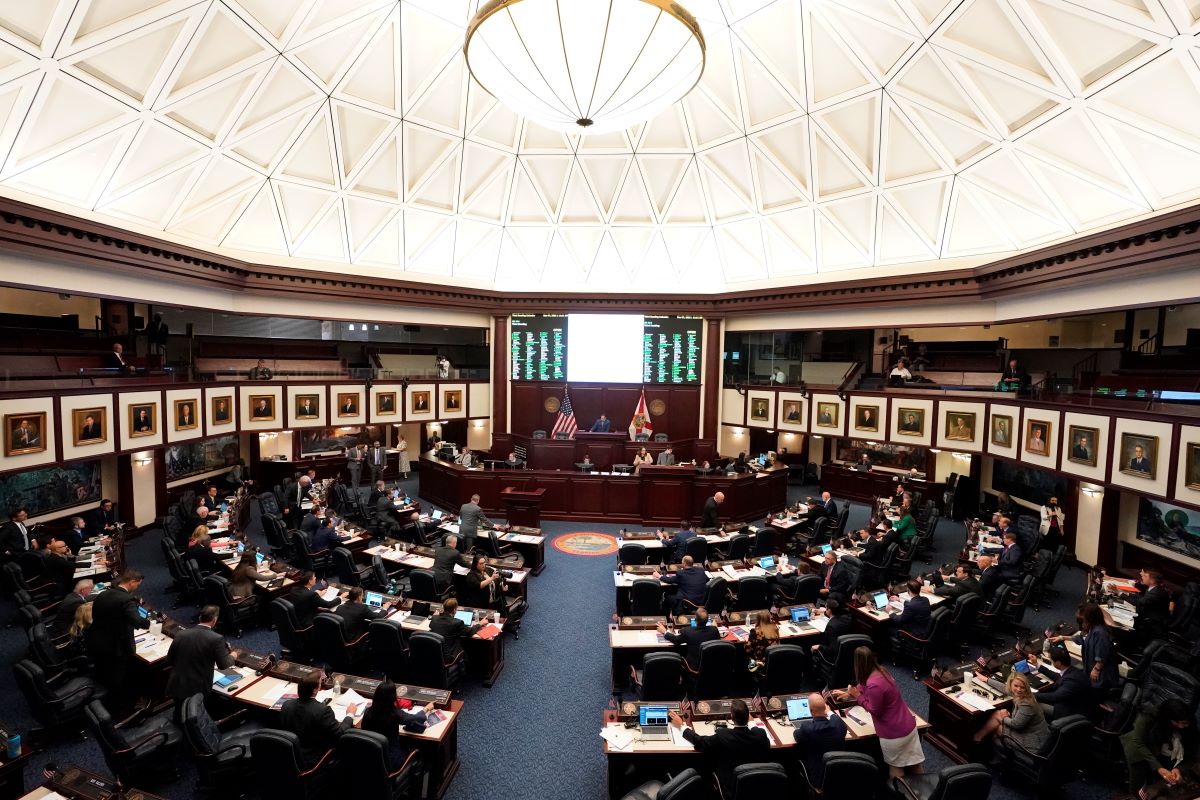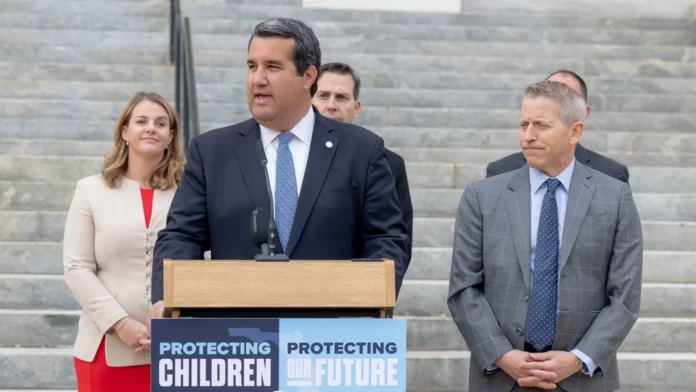On Monday, Governor Ron DeSantis signed a bill into law in Florida, barring residents under 14 from owning social media accounts and implementing restrictions for those aged 14 to 15.
The legislation, aimed at addressing concerns related to grooming and mental health among children, is slated to come into effect on January 1, 2025.
According to the text of the law, social media companies are required to identify and remove accounts belonging to Florida residents suspected to be under 14 years old.
Individuals have a 90-day window to dispute the termination of their accounts if they believe they have been mistakenly identified.
Additionally, parents in the state have the authority to request the termination of their children’s accounts, a process that must be completed within 10 business days.

However, teenagers aged 14 and 15 can maintain social media accounts with parental or guardian consent.
Governor DeSantis emphasized during a press conference that the bill is designed to safeguard children from online predators, highlighting the potential dangers posed by individuals exploiting online platforms to target minors.
Earlier this month, Governor DeSantis vetoed a previous version of the bill that sought to prohibit individuals under 16 from having social media accounts, irrespective of parental consent.
He cited concerns about protecting free speech rights and indicated that lawmakers would revise the legislation accordingly.

Paul Renner, the speaker of the Florida House of Representatives, condemned social media platforms for using algorithms to engage young users with content that could adversely impact their mental health. Renner anticipated resistance from the tech industry but expressed confidence in overcoming it.
Platforms like Snapchat, TikTok, and Instagram already impose age restrictions, prohibiting children under 13 from creating accounts to comply with the Children’s Online Privacy Protection Act. However, these age limits do not prevent minors from falsifying their ages to bypass restrictions.
Critics of the legislation are likely to challenge it on First Amendment grounds. Tech trade group NetChoice, representing companies like Meta, TikTok, and Snapchat, has previously contested similar laws in other states, arguing that they infringe upon free speech rights.
Notably, Ohio and Arkansas faced legal action over comparable restrictions, resulting in injunctions against their enforcement.
Utah became the first state to regulate minors’ access to social media in March 2023, enacting a law requiring parental permission for individuals under 18 to create accounts. At the time of publication, representatives for Governor DeSantis, Meta, TikTok, and Snapchat had not responded to requests for comment.
